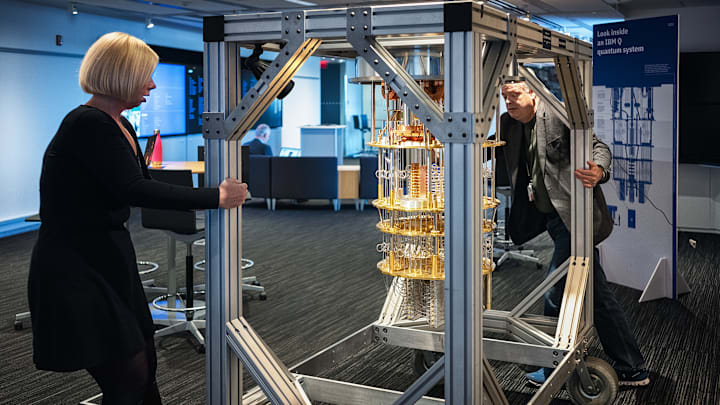The Quantum Computing Revolution: Harnessing Quantum Mechanics for Future Technologies

Quantum computing is poised to revolutionize technology by leveraging the principles of quantum mechanics to perform computations that are currently infeasible for classical computers. This transformative field promises to solve complex problems in areas such as cryptography, drug discovery, and optimization, offering unprecedented computational power and speed. As research and development in quantum computing progress, the potential for groundbreaking advancements grows ever closer.
At the core of quantum computing are quantum bits, or qubits, which differ fundamentally from classical bits. While classical bits represent information as either 0 or 1, qubits can exist in a superposition of states, representing both 0 and 1 simultaneously. This property allows quantum computers to process multiple possibilities at once, vastly increasing their computational capacity. Additionally, qubits can become entangled, meaning the state of one qubit is directly related to the state of another, regardless of the distance between them. This entanglement enables quantum computers to perform complex calculations with a level of efficiency that classical computers cannot match.
One of the most promising applications of quantum computing is in the field of cryptography. Current encryption methods rely on the difficulty of factoring large numbers, a task that classical computers find challenging. Quantum computers, however, can leverage algorithms like Shor's algorithm to factor these numbers exponentially faster, potentially rendering existing encryption methods obsolete. This capability poses both opportunities and challenges: while it could lead to more secure communication systems, it also necessitates the development of new cryptographic techniques resistant to quantum attacks.
In drug discovery and materials science, quantum computing offers the potential to revolutionize the way we understand and manipulate molecular structures. Simulating the behavior of molecules at the quantum level is a computationally intensive task that classical computers struggle to perform accurately. Quantum computers can model these interactions more precisely, accelerating the discovery of new drugs and materials. For instance, they could identify the most effective molecular structures for targeting specific diseases or design new materials with desired properties for use in technology and industry.
Optimization problems, which involve finding the best solution from a vast number of possibilities, are another area where quantum computing excels. These problems are prevalent in industries such as logistics, finance, and manufacturing. Quantum algorithms can solve optimization problems more efficiently than classical algorithms, leading to significant improvements in operational efficiency and cost savings. For example, quantum computing could optimize supply chain logistics, financial portfolio management, and complex scheduling tasks.
Despite its potential, the development of practical quantum computers faces significant technical challenges. Qubits are highly susceptible to environmental disturbances, leading to errors in calculations. Maintaining qubit coherence and reducing error rates are critical areas of ongoing research. Techniques such as quantum error correction and the development of more stable qubit systems are essential for advancing the field.
Moreover, the infrastructure required for quantum computing, including cryogenic systems and specialized hardware, presents substantial logistical and economic hurdles. Collaboration between academia, industry, and government is crucial to overcoming these challenges and accelerating the development of quantum technologies.
In conclusion, quantum computing represents a paradigm shift in computational power, with the potential to revolutionize numerous fields through its unparalleled ability to solve complex problems. While significant technical challenges remain, the progress being made in quantum research and development is promising. As we harness the principles of quantum mechanics, the future of technology looks increasingly bright, offering solutions to some of the most pressing problems in science, industry, and beyond.